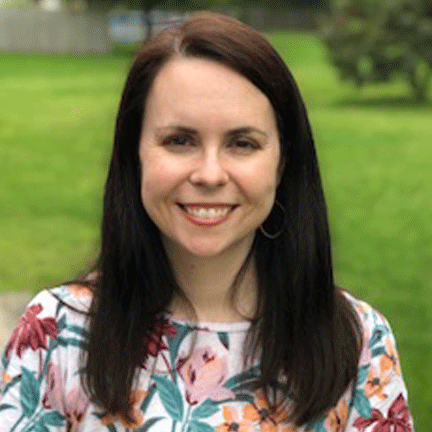I hear that some people thrive on change. They get excited about new opportunities; they seek out ways to shake up their lives; they love the challenge of fitting themselves into a new place. I’m fascinated by these people, because I could not be more different.
I like constancy. My mind relaxes when I know what to expect, and I appreciate when I am in the comfort zone of knowing the people around me and how they are likely to react in any given situation. I schedule my days in advance and love checking items off a list. I love the pleasure of understanding how everything around me is supposed to work. I’m not a fan of surprises.
So I was thrown off my game last summer when I surprised myself by applying for my school’s assistant principal position, and again when I was offered the job and accepted it. I was excited to have this new opportunity, but I was also unnerved by all the change that I knew was coming.
Education exists in a pattern of change. Every year, we get new students, new colleagues, new grades or subjects to teach, new administrators, new curricula. Even when we don’t entirely change our roles, there are always new responsibilities and changes to our job descriptions. To survive and thrive as an educator, it’s essential to be able to work with and work through change of all kinds. Here are some things that helped me this year.
Be willing to learn.
While I theoretically understood what my new role entailed, nothing replaces the reality of experiencing it every day. To be effective, I spent lots of time asking questions and paying attention to the way the other administrators handled issues so that I would be consistent. I spent time with teachers, asking them questions and listening to what they needed. I read their professional growth plans and looked for ways to help them achieve the growth they wanted. I listened to what they needed from me instead of assuming I already knew.
Being willing to learn kept me humble and helped me see opportunities to make a difference in my school. That humility is essential in any new role, whether the job is brand new or the job you had has changed. We want to be seen as experts in what we do, but that comes with time and with hours spent reading, listening, and learning to be effective. Expertise requires the grace to accept that you always have a lot to learn.
Be honest with others.
In my first year of teaching, my principal left after about six weeks for a job at Central Office. He was replaced by a young man in his first year of administration. It wasn’t easy replacing a beloved, long-term principal, but he worked hard and did a great job. I sat in his office at the end of the year watching him sort papers on his desk to find the pages that held my final evaluation. We chatted about how the year had gone, and I told him he’d done a good job with a difficult situation. He sighed and laughed, and then he said, “Julie, I don’t know what I’m doing.”
Those words and his honesty have gone with me throughout the rest of my career in education. When I see other administrators who seem to have it all together and I’m tempted to try to imitate their cool confidence or the way they lead a meeting, I remember sitting in my first principal’s office and the understanding that it’s okay to be honest about who and where you are. I’m not here to do a job like someone else would do it; I’m here to do it like myself. Honesty with others is important for doing a job of which I can be proud.
Be in connection with what you love.
In a new school role, it is much too easy to get caught up in all there is to learn and let the things you loved slide. Everything may feel different—new room in the school, new content, new relationships with students—but the reason you show up in the school every day is the same. The antidote for a stressful meeting is walking through the halls while students are changing classes or stopping by a table to chat in the cafeteria. When there are piles of paperwork, I make time to drop in to teachers’ rooms during planning periods, or schedule a conference with a student who needs to talk. A new role can feel overwhelming, and while it is easy to focus on what is needed to get better, make sure to ground yourself in what is already good: the students, the staff, and the amazing learning that goes on in these halls every single day.
I don’t expect that I will ever be a person who is excited about change, but I do like the effects of change in my life. Starting over gives me the opportunity to see the work I do in a fresh way, and it helps me see the job I love from a new angle, opening up chances to help students and teachers in new ways. Change helps me grow, and it reminds me of what is important in the work and joy of education.


